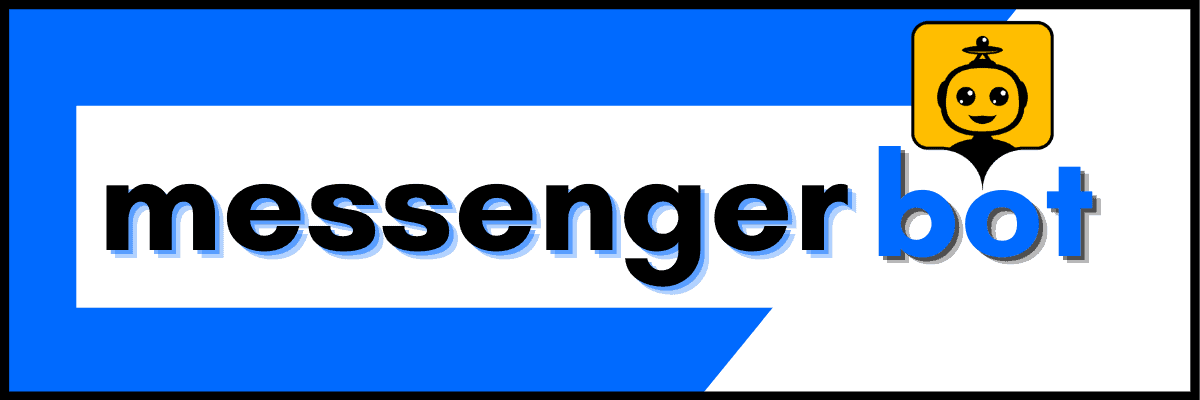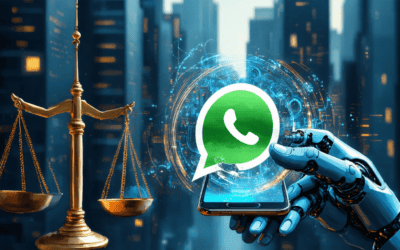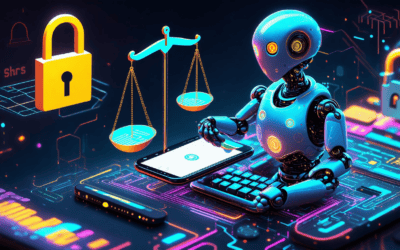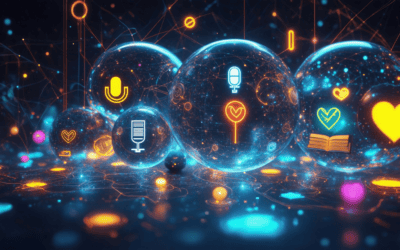In today’s digital landscape, chatbots have emerged as game-changers for companies seeking to revolutionize customer engagement. From streamlining customer service to enhancing user experiences, these AI-powered tools are reshaping how businesses interact with their audience. As we delve into the world of chatbots used by companies, we’ll explore the diverse applications, industry leaders, and innovative strategies that are setting new standards in customer communication. Whether you’re curious about the most used chatbot, wondering which industries are at the forefront of this technology, or seeking insights into when and why to implement a chatbot for your business, this article will provide a comprehensive overview of how top companies are leveraging chatbots to stay ahead in the competitive market.
The Evolution of Customer Engagement
Customer engagement has undergone a remarkable transformation in recent years, largely driven by the advent of AI-powered chatbots. As businesses strive to provide seamless, round-the-clock support, chatbots have emerged as a game-changing solution. At Messenger Bot, we’ve witnessed firsthand how these intelligent conversational agents are revolutionizing the way companies interact with their customers.
What is the most used chatbot?
Currently, ChatGPT, developed by OpenAI, holds the title of the most widely used chatbot globally. Since its launch in November 2022, ChatGPT has taken the world by storm, amassing over 100 million users in just two months. Its versatility in handling a wide range of tasks, from answering complex questions to writing code, has contributed to its unprecedented popularity.
While ChatGPT leads the pack, several other AI chatbots have also gained significant traction:
1. Google’s Bard
2. Microsoft’s Bing AI
3. Anthropic’s Claude
4. Replika
5. Xiaoice
6. Mitsuku
7. Alexa
8. Siri
9. IBM Watson Assistant
Each of these chatbots brings unique capabilities to the table, catering to different needs and audiences. For instance, Google’s Bard and Microsoft’s Bing AI excel in search-related queries, while Replika focuses on providing companionship. Xiaoice, popular in China, is known for its emotional intelligence, and Mitsuku has earned recognition for its human-like conversations.
At Messenger Bot, we’ve integrated some of the most advanced AI technologies to create a powerful chatbot solution that rivals these industry leaders. Our platform combines the best of AI-driven conversation with customizable features to meet the unique needs of businesses across various sectors.
Revolutionizing customer interactions
The rise of chatbots has fundamentally changed the landscape of customer interactions. These AI-powered assistants are transforming how businesses engage with their audience, offering several key benefits:
1. 24/7 Availability: Chatbots provide round-the-clock support, ensuring that customers can get assistance at any time, significantly enhancing the overall customer experience.
2. Instant Responses: With chatbots, customers no longer have to wait for human agents to become available. They receive immediate responses to their queries, improving satisfaction and reducing frustration.
3. Scalability: Chatbots can handle multiple conversations simultaneously, allowing businesses to scale their customer service operations without proportionally increasing costs.
4. Consistency: AI-powered chatbots deliver consistent responses, ensuring that every customer receives the same high-quality information and support.
5. Data Collection and Analysis: Chatbots can gather valuable customer data and insights, helping businesses understand their audience better and make informed decisions.
At Messenger Bot, we’ve seen firsthand how our AI-powered customer service bots are elevating brand support experiences. By leveraging advanced natural language processing and machine learning algorithms, our chatbots can understand context, sentiment, and intent, allowing for more natural and effective conversations.
The evolution of customer engagement through chatbots is not just about automation; it’s about creating more meaningful, efficient, and personalized interactions. As we continue to innovate and improve our chatbot technology, we’re excited to be at the forefront of this customer service revolution, helping businesses of all sizes harness the power of AI to transform their customer engagement strategies.

Understanding Chatbot Diversity
At Messenger Bot, we recognize the importance of understanding the diverse landscape of chatbots to help businesses choose the right solution for their needs. As AI technology continues to evolve, chatbots have become increasingly sophisticated, offering a wide range of capabilities to enhance customer engagement and streamline operations.
What are the 4 types of chatbots?
The four primary types of chatbots are:
1. Rule-based chatbots: These operate on predefined rules and decision trees, providing consistent responses to specific inputs. They excel in handling straightforward queries but lack flexibility for complex conversations.
2. AI-powered chatbots: Utilizing natural language processing (NLP) and machine learning, these chatbots understand context and intent, learning from interactions to improve over time. They can handle more complex queries and provide personalized responses.
3. Hybrid chatbots: Combining rule-based and AI-powered elements, these chatbots offer the reliability of predefined responses with the adaptability of AI. They can handle a wide range of queries efficiently, switching between modes as needed.
4. Voice-enabled chatbots: These chatbots use speech recognition technology to interact with users through voice commands. They’re increasingly popular in virtual assistants and smart home devices, offering hands-free interaction.
Each type serves different purposes:
– Rule-based chatbots are ideal for customer support with frequently asked questions.
– AI-powered chatbots excel in more dynamic environments, like sales or personalized recommendations.
– Hybrid chatbots offer versatility for businesses with diverse customer interaction needs.
– Voice-enabled chatbots are crucial for accessibility and convenience in various applications.
Recent advancements in natural language understanding have significantly improved chatbot capabilities. According to a 2023 study by Juniper Research, chatbots are expected to handle 75% of customer service interactions by 2027, highlighting their growing importance in business operations.
At Messenger Bot, we’ve incorporated these advancements into our AI-powered chatbot solution, offering businesses a versatile tool that can adapt to various customer service scenarios. Our platform combines the best elements of rule-based and AI-powered chatbots, providing a hybrid solution that can handle complex queries while maintaining the reliability of predefined responses.
Tailoring chatbots to business needs
Understanding the different types of chatbots is crucial, but the real value lies in tailoring these solutions to specific business needs. At Messenger Bot, we work closely with our clients to identify the most effective chatbot strategy for their unique requirements.
1. Identifying Business Goals: Before implementing a chatbot, it’s essential to define clear objectives. Whether it’s improving customer service, generating leads, or streamlining operations, the chatbot’s design should align with these goals.
2. Analyzing Customer Interactions: We help businesses analyze their customer interactions to determine the most common queries and pain points. This information guides the development of a chatbot that can effectively address these issues.
3. Choosing the Right Type: Based on the complexity of customer queries and the desired level of personalization, we recommend the most suitable type of chatbot. For instance, an e-commerce business might benefit from an AI-powered chatbot that can provide personalized product recommendations.
4. Integration with Existing Systems: Our AI-powered customer service bots are designed to integrate seamlessly with existing CRM systems and databases, ensuring a cohesive customer experience across all touchpoints.
5. Continuous Improvement: We emphasize the importance of ongoing optimization. By analyzing chatbot performance and gathering user feedback, we help businesses refine their chatbot strategies over time.
6. Multilingual Capabilities: In today’s global marketplace, language support is crucial. Our chatbots can be configured to support multiple languages, breaking down language barriers and enabling businesses to serve a diverse customer base.
7. Scalability: As businesses grow, their chatbot needs may evolve. Our solutions are designed to scale, accommodating increased user volume and more complex functionalities as required.
By tailoring chatbots to specific business needs, companies can significantly enhance their customer engagement strategies. For example, Starbucks uses a sophisticated chatbot within their mobile app to handle orders and provide personalized recommendations, demonstrating how a well-implemented chatbot can streamline operations and improve customer experience.
At Messenger Bot, we’re committed to helping businesses harness the full potential of chatbot technology. By understanding the diverse types of chatbots and tailoring solutions to specific needs, we enable our clients to stay ahead in the rapidly evolving landscape of customer engagement.
Chatbots Across Industries
At Messenger Bot, we’ve observed the transformative impact of chatbots across various sectors. As businesses increasingly recognize the value of AI-driven customer engagement, chatbot adoption has skyrocketed, revolutionizing how companies interact with their customers.
What industry uses chatbots the most?
While chatbots have found applications in numerous fields, certain industries have emerged as frontrunners in chatbot adoption. Based on recent studies and our experience at Messenger Bot, the e-commerce and retail sector leads the pack, with 67% of retailers implementing AI-powered chatbots (Juniper Research, 2022). This high adoption rate is driven by the need for personalized product recommendations, efficient order tracking, and round-the-clock customer support.
Following closely is the banking and financial services industry, where 64% of institutions are leveraging chatbots (Insider Intelligence, 2023). In this sector, chatbots excel in handling account inquiries, assisting with transactions, and even detecting potential fraud, providing customers with quick and secure access to their financial information.
The healthcare industry is also experiencing rapid chatbot integration, with the market projected to grow at a CAGR of 21.56% from 2022 to 2030 (Grand View Research, 2022). Healthcare chatbots are revolutionizing patient care by facilitating appointment scheduling, conducting initial symptom checks, and sending medication reminders.
Other industries showing significant chatbot adoption include:
1. Travel and Hospitality: Chatbots provide booking assistance, travel recommendations, and enhance guest services.
2. Telecommunications: They handle technical support, service upgrades, and billing inquiries efficiently.
3. Insurance: Chatbots streamline claims processing, provide policy information, and generate quotes.
4. Real Estate: They assist with property searches, offer virtual tours, and schedule appointments.
5. Education: Chatbots support student enrollment, provide course information, and offer administrative assistance.
At Messenger Bot, we’ve developed our AI-powered chatbot solution to cater to these diverse industry needs. Our platform’s versatility allows businesses across sectors to implement chatbots that align with their specific requirements, whether it’s enhancing customer support, boosting sales, or streamlining operations.
Expanding chatbot adoption in various sectors
As AI technology continues to advance, we’re witnessing an expansion of chatbot adoption across an even broader range of industries. At Messenger Bot, we’re at the forefront of this expansion, helping businesses in various sectors harness the power of AI-driven customer engagement.
1. Human Resources: HR departments are increasingly using chatbots for recruitment, employee onboarding, and benefits management. Our chatbots can handle initial candidate screenings, answer frequently asked questions about company policies, and guide new employees through the onboarding process.
2. Government Services: Public sector organizations are adopting chatbots to handle citizen inquiries, assist with form submissions, and provide service information. This adoption is significantly reducing wait times and improving access to government services.
3. Manufacturing: Chatbots are being used for inventory management, quality control inquiries, and even to assist with machine maintenance schedules.
4. Non-profit Organizations: Charities and NGOs are leveraging chatbots for donor engagement, volunteer coordination, and to provide information about their causes and initiatives.
5. Legal Services: Law firms are implementing chatbots to handle initial client inquiries, schedule consultations, and provide basic legal information.
The expansion of chatbot adoption is driven by several factors:
– Improved Natural Language Processing (NLP): Advancements in NLP allow chatbots to understand and respond to user queries more accurately, making them suitable for complex industries.
– Integration Capabilities: Our AI-powered customer service bots can integrate seamlessly with existing systems, making implementation easier across various sectors.
– Cost-Effectiveness: Chatbots offer a cost-effective solution for businesses looking to enhance customer service without significantly increasing overhead.
– 24/7 Availability: The ability to provide round-the-clock service is particularly valuable in industries with global operations or time-sensitive inquiries.
– Data Collection and Analysis: Chatbots can gather valuable customer data, providing insights that help businesses improve their products and services.
At Messenger Bot, we’re continually innovating to meet the evolving needs of diverse industries. For instance, our multilingual chatbot capabilities are particularly valuable for businesses operating in global markets or serving diverse communities.
As chatbot technology continues to evolve, we anticipate even broader adoption across industries. The key to successful implementation lies in tailoring the chatbot solution to the specific needs of each sector and continuously refining its capabilities based on user interactions and feedback.
Companies like Amazon and IBM are also pushing the boundaries of chatbot technology, but at Messenger Bot, we pride ourselves on offering a solution that’s both powerful and accessible to businesses of all sizes.
By leveraging our expertise and cutting-edge AI technology, businesses across various sectors can enhance their customer engagement, streamline operations, and stay ahead in an increasingly digital marketplace. The future of customer interaction is here, and it’s powered by intelligent, versatile chatbots.
Case Study: Starbucks’ Chatbot Strategy
At Messenger Bot, we’re always looking to industry leaders for inspiration in chatbot implementation. Starbucks stands out as a prime example of how AI-driven customer engagement can transform a brand’s digital presence and customer experience.
Does Starbucks use chatbots?
Absolutely. Starbucks has embraced chatbot technology with open arms, integrating AI-powered conversational interfaces across multiple platforms to enhance customer experience and streamline ordering processes. As a leader in the coffee industry, Starbucks’ adoption of chatbots demonstrates the technology’s potential for businesses of all sizes.
Starbucks’ chatbot strategy includes:
1. Mobile App Integration: The Starbucks mobile app features a sophisticated voice-activated chatbot that allows customers to place orders using natural language processing. This AI-driven system supports seamless voice ordering, interprets complex requests, and facilitates payments through linked credit cards or Starbucks gift cards.
2. “My Starbucks Barista”: Launched in 2017, this virtual barista service is available within their mobile app and on platforms like Facebook Messenger. It enables customers to place orders via text or voice commands, simulating a conversation with a human barista.
3. Smart Home Device Integration: Starbucks has developed skills for Amazon Alexa and Google Home, allowing customers to reorder their favorite items through voice commands in their homes or cars.
4. “Deep Brew” AI Initiative: Introduced in 2019, this technology enhances Starbucks’ chatbot functionalities, improving natural language understanding and predictive analytics to anticipate customer needs and streamline operations.
At Messenger Bot, we’re inspired by Starbucks’ comprehensive approach to chatbot implementation. Our AI-powered chatbot solution offers similar capabilities, allowing businesses of all sizes to create personalized, efficient customer interactions across multiple platforms.
Enhancing customer experience through AI
Starbucks’ chatbot strategy exemplifies how AI can significantly enhance customer experience. At Messenger Bot, we’ve observed similar positive outcomes for businesses implementing our chatbot solutions. Here’s how AI-driven chatbots are revolutionizing customer experience:
1. Personalization: Starbucks’ chatbots analyze customer preferences, order history, and location data to provide tailored recommendations. Similarly, our AI-driven chatbots can learn from customer interactions to offer personalized suggestions and experiences.
2. Convenience: By enabling voice and text ordering across multiple platforms, Starbucks has made it incredibly convenient for customers to interact with their brand. Our chatbots can be integrated into various platforms, including websites, mobile apps, and social media, ensuring customers can reach businesses through their preferred channels.
3. 24/7 Availability: Starbucks’ chatbots provide round-the-clock service, allowing customers to place orders or get information at any time. This aligns with our commitment to providing businesses with always-on customer support through our chatbot solutions.
4. Streamlined Operations: The AI-powered chatbots help Starbucks manage high volumes of customer interactions efficiently. Our chatbots similarly help businesses handle customer queries, process orders, and provide information without overwhelming human staff.
5. Data-Driven Insights: Starbucks’ “Deep Brew” initiative uses AI to gather and analyze customer data, informing business decisions and further improving the customer experience. Our chatbots also provide valuable analytics, helping businesses understand customer preferences and behavior.
6. Omnichannel Presence: Starbucks’ chatbots work across mobile apps, social media, and smart home devices, creating a seamless omnichannel experience. At Messenger Bot, we emphasize the importance of multi-channel messenger bot marketing strategies to ensure consistent customer experiences across all platforms.
7. Natural Language Processing: Starbucks’ chatbots understand and respond to natural language, making interactions more human-like and intuitive. Our AI-powered chatbots are designed with advanced NLP capabilities, ensuring smooth and natural conversations with customers.
While Starbucks sets a high bar, it’s important to note that businesses of all sizes can leverage similar AI-driven chatbot strategies. At Messenger Bot, we provide scalable solutions that allow companies to implement sophisticated chatbot technology, regardless of their size or industry.
By adopting AI-powered chatbots, businesses can significantly enhance their customer experience, leading to increased customer satisfaction, loyalty, and ultimately, business growth. As we continue to innovate in the field of AI and chatbot technology, we’re excited to help more businesses transform their customer engagement strategies and achieve Starbucks-level success in the digital realm.

Amazon’s Chatbot Innovation
At Messenger Bot, we’re always keeping an eye on industry leaders and their innovative approaches to customer engagement. Amazon, the e-commerce giant, has been at the forefront of chatbot technology, continually pushing the boundaries of what’s possible in AI-driven customer service.
Which chatbot does Amazon use?
Amazon recently unveiled Rufus, an AI-powered chatbot designed to revolutionize the online shopping experience. This innovative virtual assistant leverages advanced natural language processing and machine learning algorithms to provide personalized product recommendations, answer customer queries, and streamline the purchasing process.
Key features of Rufus include:
1. Product discovery: Helps users find items based on specific needs or preferences
2. Comparative analysis: Offers side-by-side product comparisons
3. Contextual understanding: Interprets complex queries and provides relevant information
4. Real-time updates: Delivers the latest product information and deals
Rufus integrates seamlessly with Amazon’s vast product catalog and customer review database, offering insights based on millions of data points. This AI-driven approach aims to enhance customer satisfaction, increase conversion rates, and reduce the time spent searching for products.
The introduction of Rufus aligns with the growing trend of conversational commerce, as noted in a recent McKinsey report which predicts a 25% increase in AI-assisted shopping by 2025. Amazon’s investment in this technology underscores the company’s commitment to maintaining its competitive edge in the e-commerce sector.
At Messenger Bot, we’re inspired by Amazon’s commitment to innovation. While Rufus is tailored for Amazon’s specific needs, our AI-powered chatbot solution offers similar capabilities that can be customized for businesses of all sizes across various industries.
Leveraging AI for e-commerce success
Amazon’s chatbot strategy demonstrates the power of AI in driving e-commerce success. At Messenger Bot, we’ve observed similar benefits for businesses implementing our chatbot solutions. Here’s how AI-driven chatbots are transforming e-commerce:
1. Personalized Shopping Experience: Like Rufus, our chatbots can analyze user preferences and behavior to offer tailored product recommendations. This personalization can significantly increase conversion rates and customer satisfaction.
2. 24/7 Customer Support: Amazon’s chatbot provides round-the-clock assistance, a feature that’s crucial in the global e-commerce landscape. Our chatbots offer the same always-on support, ensuring customers can get help whenever they need it.
3. Streamlined Product Discovery: Rufus simplifies the process of finding products in Amazon’s vast catalog. Similarly, our chatbots can be integrated with your product database to help customers quickly find what they’re looking for, reducing bounce rates and increasing sales.
4. Efficient Query Handling: Amazon’s chatbot can handle a wide range of customer queries, from product information to shipping details. Our AI-driven chatbots are designed to do the same, freeing up human resources for more complex tasks.
5. Data-Driven Insights: The data collected by Rufus helps Amazon understand customer preferences and trends. Our chatbots provide similar analytics, offering valuable insights that can inform your business strategies.
6. Multilingual Support: While not explicitly mentioned for Rufus, multilingual support is crucial for global e-commerce. Our chatbots offer multilingual capabilities, allowing businesses to serve customers in their preferred language.
7. Seamless Integration: Rufus integrates with Amazon’s existing systems. Similarly, our chatbots can be easily integrated with your e-commerce platform, CRM, and other business tools for a cohesive customer experience.
While Amazon sets a high standard with Rufus, it’s important to note that businesses of all sizes can leverage similar AI-driven chatbot strategies. At Messenger Bot, we provide scalable solutions that allow companies to implement sophisticated chatbot technology, regardless of their size or industry.
By adopting AI-powered chatbots, e-commerce businesses can significantly enhance their customer experience, leading to increased customer satisfaction, loyalty, and ultimately, business growth. As we continue to innovate in the field of AI and chatbot technology, we’re excited to help more businesses transform their e-commerce strategies and achieve Amazon-level success in the digital realm.
The e-commerce landscape is rapidly evolving, and chatbots are at the forefront of this transformation. Whether you’re a small online retailer or a large e-commerce platform, implementing an AI-driven chatbot can give you a competitive edge in today’s digital marketplace. At Messenger Bot, we’re committed to helping businesses of all sizes harness the power of AI to drive their e-commerce success.
The Future of AI Chatbots
At Messenger Bot, we’re constantly monitoring the evolving landscape of AI chatbots to ensure we’re at the forefront of innovation. As we look towards the future, it’s clear that AI chatbots are set to revolutionize customer engagement across industries.
Is ChatGPT still the best AI?
While ChatGPT continues to be a frontrunner in the AI chatbot space, the landscape is rapidly evolving. As of 2024, ChatGPT’s continuous improvements, including enhanced capabilities and reduced limitations in the free version, have solidified its position as a leading AI chatbot. However, it’s important to note that the concept of the “best” AI is nuanced and context-dependent.
Key factors contributing to ChatGPT’s prominence include:
1. A large-scale language model with a vast knowledge base
2. Regular updates improving performance and capabilities
3. Wide accessibility through free and paid versions
4. Versatility in handling diverse tasks and queries
5. Integration with third-party applications and platforms
Despite ChatGPT’s strengths, other AI models are making significant strides:
• Google’s Bard leverages real-time internet access for up-to-date information
• Anthropic’s Claude is known for ethical considerations and detailed explanations
• Microsoft’s Copilot seamlessly integrates with productivity tools
At Messenger Bot, we recognize that the “best” AI depends on specific use cases, user preferences, and required features. While ChatGPT often leads in general conversational AI and creative tasks, other AI models may be more suitable for specialized applications or particular industries.
Recent advancements in multimodal AI, combining text, image, and audio processing, are reshaping the landscape. OpenAI’s GPT-4 with vision capabilities and Google’s Gemini showcase the evolving nature of AI technology.
When determining the most suitable AI for individual needs, we advise our clients to consider factors such as:
• Task specificity
• Required accuracy and up-to-date information
• Integration with existing tools and workflows
• Privacy and security concerns
• Cost and accessibility
Our AI-powered chatbot solution is designed to be versatile and adaptable, incorporating the best features from various AI models to meet the specific needs of businesses across industries.
Emerging trends in chatbot technology
As we continue to innovate and improve our chatbot solutions at Messenger Bot, we’re seeing several exciting trends emerging in the field of AI chatbots:
1. Multimodal AI: The integration of text, voice, and visual processing is becoming increasingly common. This allows chatbots to understand and respond to a wider range of inputs, enhancing user experience and accessibility.
2. Emotional Intelligence: Advanced natural language processing is enabling chatbots to better understand and respond to human emotions, leading to more empathetic and personalized interactions.
3. Hyper-personalization: AI chatbots are becoming more adept at tailoring responses based on individual user preferences, past interactions, and contextual information.
4. Seamless Integration: Chatbots are being more tightly integrated with other business systems, such as CRM platforms and inventory management systems, allowing for more comprehensive and efficient customer service.
5. Voice-First Experiences: With the rise of smart speakers and voice assistants, there’s a growing trend towards voice-activated chatbots, offering hands-free interaction.
6. Augmented Reality (AR) Integration: Some chatbots are beginning to incorporate AR features, allowing for interactive visual experiences within the chat interface.
7. Blockchain for Security: To address privacy concerns, some chatbot developers are exploring blockchain technology to enhance data security and user trust.
8. Predictive Analytics: AI chatbots are increasingly using predictive models to anticipate user needs and offer proactive assistance.
9. Collaborative AI: We’re seeing the development of chatbot systems that can seamlessly collaborate with human agents, providing a hybrid approach to customer service.
10. Industry-Specific Solutions: There’s a growing trend towards chatbots tailored for specific industries, such as healthcare, finance, and education, with specialized knowledge and capabilities.
At Messenger Bot, we’re excited about these emerging trends and are continuously working to incorporate cutting-edge features into our AI-driven chatbot solutions. We believe that the future of chatbots lies in their ability to provide increasingly natural, intelligent, and personalized interactions that seamlessly integrate with various aspects of business operations.
As AI technology continues to advance, we anticipate chatbots becoming even more sophisticated, capable of handling complex queries, and playing a central role in customer engagement strategies across industries. The key to success will be striking the right balance between automation and human touch, ensuring that chatbots enhance rather than replace the human element in customer interactions.
Companies looking to stay ahead in customer engagement should consider implementing AI chatbots as part of their digital strategy. With the right approach, chatbots can significantly improve customer satisfaction, operational efficiency, and ultimately, business growth. At Messenger Bot, we’re committed to helping businesses navigate this exciting future, providing cutting-edge chatbot solutions that evolve with the latest technological advancements.
Why Companies Embrace Chatbots
At Messenger Bot, we’ve witnessed firsthand the transformative impact of chatbots on businesses across various industries. The adoption of chatbots has become a strategic imperative for companies looking to enhance customer engagement, streamline operations, and stay competitive in today’s digital landscape.
The importance of chatbots in modern business
Chatbots have become an integral part of modern business strategies, offering numerous benefits that contribute to improved customer experiences and operational efficiency. Here are key reasons why companies are increasingly embracing chatbot technology:
1. 24/7 Availability: Chatbots provide round-the-clock customer support, ensuring that customers can get assistance at any time, even outside of regular business hours. This constant availability significantly enhances customer satisfaction and can lead to increased sales and loyalty.
2. Cost-Effective Customer Service: By automating routine inquiries and tasks, chatbots can significantly reduce the workload on human customer service representatives. This allows companies to allocate their human resources more efficiently, focusing on complex issues that require a personal touch.
3. Scalability: As businesses grow, chatbots can easily handle an increasing volume of customer interactions without the need for proportional increases in staffing. This scalability is particularly valuable for companies experiencing rapid growth or seasonal fluctuations in demand.
4. Improved Response Times: Chatbots can provide instant responses to customer queries, dramatically reducing wait times and improving overall customer satisfaction. This quick turnaround can be a significant competitive advantage in industries where response time is crucial.
5. Data Collection and Analysis: Chatbots can gather valuable data from customer interactions, providing insights into customer preferences, common issues, and trends. This data can be used to improve products, services, and overall customer experience.
6. Personalization: Advanced AI-powered chatbots can offer personalized recommendations and support based on customer history and preferences, enhancing the overall customer experience and potentially increasing sales.
7. Multi-Channel Support: Chatbots can be integrated across various platforms, including websites, mobile apps, and social media channels, providing a consistent customer experience across all touchpoints.
8. Lead Generation and Qualification: Chatbots can engage potential customers, gather initial information, and qualify leads before handing them off to sales teams, improving the efficiency of the sales process.
9. Reduced Human Error: By following programmed protocols, chatbots can minimize errors in information delivery and ensure consistent responses to customer inquiries.
10. Language Support: Many chatbots, including our solution at Messenger Bot, offer multilingual capabilities, allowing businesses to serve a global customer base without the need for extensive language-specific staff.
The importance of chatbots in modern business cannot be overstated. They represent a significant shift in how companies interact with their customers, offering a blend of efficiency, personalization, and scalability that was previously unattainable. As AI technology continues to advance, we expect chatbots to become even more sophisticated, further cementing their role as a critical component of business operations and customer engagement strategies.
When should you consider using a chatbot?
At Messenger Bot, we often advise businesses on the optimal timing for implementing chatbot solutions. While chatbots offer numerous benefits, the decision to deploy one should be strategic and aligned with your business goals. Here are key scenarios when you should consider using a chatbot:
1. High Volume of Repetitive Queries: If your customer service team is overwhelmed with simple, repetitive questions, it’s time to consider a chatbot. Chatbots excel at handling FAQs, freeing up your human agents to focus on more complex issues.
2. Need for 24/7 Customer Support: If your business operates globally or you want to provide round-the-clock support without the cost of maintaining a 24/7 human team, a chatbot is an ideal solution.
3. Scaling Customer Service: As your business grows, a chatbot can help you manage increased customer interactions without a proportional increase in staff. This is particularly useful for startups and rapidly growing companies.
4. Improving Response Times: If you’re struggling to meet customer expectations for quick responses, a chatbot can provide instant answers, significantly reducing wait times.
5. Enhancing Lead Generation: When you want to capture and qualify leads more efficiently, a chatbot can engage visitors, collect information, and nurture potential customers through the sales funnel.
6. Streamlining Booking and Reservation Processes: For businesses in hospitality, healthcare, or any industry that relies on appointments, a chatbot can simplify and automate the booking process.
7. Providing Multilingual Support: If you’re expanding into new markets or serving a diverse customer base, a multilingual chatbot can offer support in various languages without the need for a large multilingual staff.
8. Personalizing Customer Experiences: When you want to offer more personalized interactions based on customer data and behavior, an AI-powered chatbot can provide tailored recommendations and support.
9. Launching New Products or Services: Chatbots can be excellent tools for educating customers about new offerings, answering questions, and guiding them through the adoption process.
10. Conducting Market Research: If you need to gather customer feedback or conduct surveys, a chatbot can engage users in conversational surveys, often yielding higher response rates than traditional methods.
11. Reducing Cart Abandonment: For e-commerce businesses struggling with high cart abandonment rates, a chatbot can provide timely assistance and incentives to complete purchases.
12. Enhancing Internal Operations: Consider a chatbot for internal use to streamline HR processes, IT support, or other departmental functions that involve repetitive queries or tasks.
13. Improving Mobile App Engagement: If you have a mobile app and want to enhance user engagement, an in-app chatbot can provide quick access to information and support.
14. Complementing Human Agents: When you want to create a hybrid customer service model, chatbots can handle initial inquiries and seamlessly transfer complex issues to human agents.
15. Expanding Digital Presence: If you’re looking to increase engagement on social media platforms or messaging apps, a chatbot can provide an interactive and responsive presence.
At Messenger Bot, we understand that the decision to implement a chatbot is significant. It’s not just about following a trend; it’s about finding the right solution that aligns with your business objectives and customer needs. Our team can help you assess your specific situation and determine if a chatbot is the right fit for your business.
Remember, the most successful chatbot implementations are those that are carefully planned and integrated into your overall customer service and marketing strategies. When done right, a chatbot can significantly enhance your customer experience, improve operational efficiency, and drive business growth.
Companies like Intercom and Drift have demonstrated the power of chatbots in transforming customer engagement. However, our solution at Messenger Bot offers unique features tailored to businesses of all sizes, ensuring that you can harness the full potential of AI-driven customer interactions.
As you consider implementing a chatbot, it’s crucial to choose a solution that offers flexibility, scalability, and integrates seamlessly with your existing systems. Our free trial offer allows you to experience firsthand how our chatbot solution can benefit your business before making a commitment.




